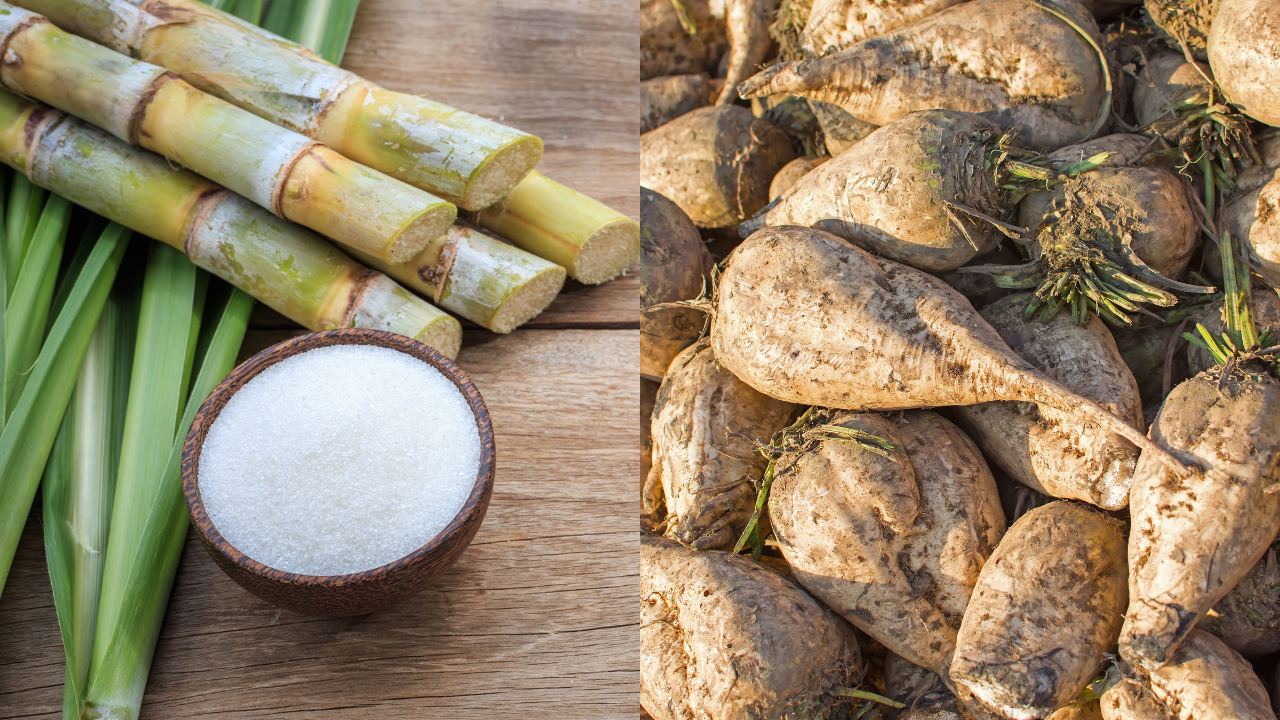The difference between beet sugar vs cane sugar extends beyond taste to how they are cultivated.
The difference between beet sugar vs cane sugar extends beyond taste to how they are cultivated.
Blog Article
An Extensive Consider the Advantages and Uses of Beet Sugar Vs Cane Sugar for Sweetening Options
In the world of sweetening, both beet sugar and cane sugar deal distinctive advantages and culinary functions, albeit with similar nutritional profiles. While beet sugar flaunts a neutral taste ideal for numerous dishes, cane sugar enhances dishes with refined caramel touches.
Beginnings and Handling Techniques of Beet Sugar and Cane Sugar
Beet sugar and cane sugar, two primary sugar, stem from extremely unique plants and undergo different processing techniques. Beet sugar is extracted from the sugar beet, an origin vegetable, primarily grown in cooler environments. The processing involves slicing the beetroots to remove the juice, which is then detoxified and taken shape into sugar. This approach is reasonably efficient, enabling sugar recuperation from multiple stages of the procedure.
On the other hand, cane sugar comes from the sugarcane plant, a tropical lawn. Its handling begins with harvesting the cane, crushing it to acquire the juice, and after that boiling this fluid to form sugar crystals. The staying molasses-rich liquid can be re-boiled several times to generate differing qualities of sugar. This procedure, although rather similar in its goal, differs substantially in terms of the environmental problems needed for growing and the initial action in drawing out sugar. beet sugar vs cane sugar. Each approach reflects adjustments to the respective plant's all-natural habitats and properties.
Nutritional Comparison: Beet Sugar Versus Cane Sugar

When contrasting the nutritional web content of beet sugar and cane sugar, it ends up being noticeable that both types give a similar energy value. Both beet and cane sugar are 99.9% pure sucrose, making them essentially similar in terms of calorie web content and dietary profile.
Nevertheless, mild distinctions might occur from the marginal micronutrient that remain after handling, though these are as well minor to effect total health. Walking stick sugar can maintain traces of molasses, depending on the degree of refining, which may include minuscule quantities of calcium, iron, and potassium. Beet sugar, on the other hand, generally undergoes a procedure that eliminates these micronutrient much more completely, causing an also purer type of sucrose.
Culinary Uses and Taste Profiles
In spite of their dietary resemblances, beet sugar and cane sugar diverge significantly in their cooking applications and taste nuances. Beet sugar, derived from sugar beetroots, normally has a really neutral taste, making it a recommended choice in baking where it seamlessly integrates without altering the flavor profile of other ingredients. beet sugar vs cane sugar. It dissolves swiftly, which is useful in beverages and fine desserts. On the other hand, cane sugar, sourced from the sugarcane plant, usually brings refined tips of molasses, also in its refined type. This can include a cozy, caramel-like undertone additional reading to meals, boosting dishes like cookies, cakes, and sauces where a richer taste is preferable.
Chefs and home cooks alike choose sugars based on these qualities. While both read more sugars function similarly in terms of sweet taste and physical homes, the slight flavor difference can affect the result of a recipe dramatically, leading the option between beet and cane sugar based upon the preferred outcome in cooking developments.
Health Implications of Consuming Beet and Cane Sugars
Although beet sugar and cane sugar are often made use of mutually in cooking and baking, their health and wellness implications can vary discreetly because of their unique handling methods. Both sugars supply about the very same amount of calories and carbs per teaspoon, essentially supplying comparable energy payments with no innate nutritional advantages. Nevertheless, the refining procedure for every sugar can alter the existence of trace minerals and compounds, although these variants are generally marginal and not substantial adequate to influence one's health and wellness meaningfully.
The main health worry about both kinds of sugar pertains to their contribution to excessive calorie consumption, potentially bring about weight gain, and involved illness like type 2 diabetic issues and heart condition when consumed in large quantities. Regardless of the source, small amounts is vital in consuming beet or cane sugars. Wellness professionals frequently recommend restricting sugarcoated in any type of kind to keep optimal wellness outcomes.
Ecological Impact and Sustainability of Sugar Manufacturing

Alternatively, sugar beet handling tends to generate huge quantities of pulp waste, which can be repurposed as pet feed or exchanged bioenergy, consequently mitigating some ecological effects (beet sugar vs cane sugar). Inevitably, the sustainability of sugar manufacturing depends upon adopting more green farming techniques and waste monitoring techniques to reduce the ecological impact of both sugar types

Final Thought
Finally, both beet and cane sugars supply useful sweetening alternatives, each with unique advantages and disadvantages. While they are nutritionally similar, their growing effects and taste profiles differ significantly. Beet sugar is significant for its sustainability and neutral taste, whereas cane sugar is valued for its abundant taste. Consumers must think about these variables, along with the environmental effects of sugar production, to make educated selections regarding sugar consumption that straighten with cooking needs and moral worths.
Report this page